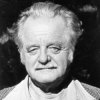Kenneth Rexroth

Kenneth Rexroth
Kenneth Charles Marion Rexrothwas an American poet, translator and critical essayist. He is regarded as a central figure in the San Francisco Renaissance, and paved the groundwork for the movement. Although he did not consider himself to be a Beat poet, and disliked the association, he was dubbed the "Father of the Beats" by Time Magazine. He was among the first poets in the United States to explore traditional Japanese poetic forms such as haiku. He was also a prolific...
NationalityAmerican
ProfessionPoet
Date of Birth22 December 1905
CountryUnited States of America
Man thrives where angels would die of ecstasy and where pigs would die of disgust.
The mature man lives quietly, does good privately, takes responsibility for his actions, treats others with friendliness and courtesy, finds mischief boring and avoids it. Without the hidden conspiracy of goodwill, society would not endure an hour.
Men who live like Casanova are seldom interested in themselves; their egocentricity does not give them time for egotism.
Today we hear a great deal about Organizational Men, Mass Culture, Conformity, the Lonely Crowd, the Power Elite and its Conspiracy of Mediocrity. We forget that the very volume of this criticism is an indication that our society is still radically pluralistic. Not only are there plenty of exceptionalists who take exception to the stereotyping of the mass culture but that very string of epithets comes from a series of books that have been recent best-sellers, symptoms of a popular, living tradition of dissent from things as they are.
Perhaps this is what really happens in life to most good men. They are not crucified. They simply pass through life and then die, and their passing influences just a few people to make them just a little happy.
Marriage is the last sacrament available to modern man, and with the terrible destruction of interpersonal relations by capitalism and its war-making State, it is not very available, nor is it surely enduring. But then, vision does not come with guarantees.
Poetry has ceased to be a public art and has become, as Whitehead said of religion, "What man does with his aloneness.
This isn't the best town for what we're doing. Too many other things to pull the crowds away.
Mary, my little girl, was confirmed in a Buddhist temple. She saw the Life write up on Buddhism, with pictures of the ceremony, and she said she wanted to be confirmed there because she only liked Jesus as a kid. She was a little disappointed in him when he grew up.
The modern sensibility attempts to drain the contents of experience; these Greek poets strive to state the fact so poignantly that it becomes an ever-flowing spring as Sappho says, "More real than real, more gold than gold.
With my own group I like to keep it loose. They have to counter rather than go with me. When they stop I like to be moving.
Lost in loneliness and pain. Black and unendurable, Thinking of you with every Corpuscle of my flesh, in Every instant of night And day.
Art is the reasoned derangement of the senses.
When the newspapers have got nothing else to talk about, they cut loose on the young. The young are always news. If they are up to something, that's news. If they aren't, that's news too.